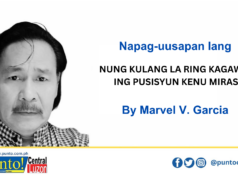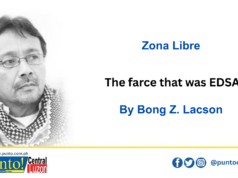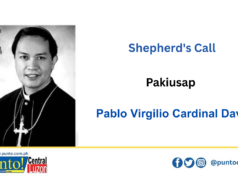IF WE are to view the unwavering loyalty of many Filipinos to the leaders they support through the psychological lens of cognitive dissonance, it would be clear why many continue to hold on to their distorted beliefs and maintain their condescending attitude even when confronted with the facts.
American social psychologist Leon Festinger came up with the concept of cognitive dissonance in 1957, and referred to it as a psychological phenomenon “that occurs when a person holds two contradictory beliefs at the same time.”
In his book “A Theory of Cognitive Dissonance,” Festinger explained that the dissonance between two opposing ideas, or between an idea and a behavior, leads to discomfort. This becomes even more intense when people hold many dissonant views that are of utmost importance to them.
Former President Rodrigo Duterte’s campaign promise of an all-out war against drugs catapulted him to Malacañang in 2016. Many believed and supported him that this was a vital move to rid the country of criminality. However, when the issue on human rights violations, mass killings and extrajudicial executions is raised, most of the Duterte supporters would turn a blind eye, defend the policy and resort to false equivalence – that human rights advocates would rather fight for the rights of drug addicts and pushers than their victims or the police officers who are simply doing their job.
I know quite a few who went through this specific struggle. Some friends who have always championed human rights since their student activist days, and some devout Catholics who consider themselves pro-life champions suddenly found themselves justifying the loss of many innocent lives simply as “collateral damage” and agreed nonchalantly with Sen. Bato del Rosa that indeed, “shit happens.”
What about the myth of the “golden age in the Philippines” during the Marcos dictatorship? I remember one Social Studies teacher parroting this revisionist narrative, cherry-picking on the infrastructure projects and perceived economic stability during that particularly dark era in the nation’s history. But when presented with economic data and indexes such as unemployment, inflation, peso devaluation, balance of payments, foreign debt, gross domestic product and gross national product that are readily accessible, he put out the emotional card by saying he was entitled to his opinion and that we should simply agree to disagree.
With the ongoing saga at the House of Representatives, I have heard many expressing their unequivocal support for and belief in Vice President Sara Duterte. Despite overwhelming evidence on the misuse of taxpayers’ money and her inability to account for the confidential funds of her office, many remain vocal in saying she is the country’s best hope in 2028. Many are willing to disregard the very basic concept that a public office is a public trust and that the foundations of trust are transparency and accountability.
This is not surprising at all. Back in 2011, then Davao Mayor Sara assaulted a court sheriff who was following a demolition order issued by Judge Emmanuel Carpio. Her supporters cheered and pictured her as a champion of the poor, despite her behavior which many lawyers considered as “very unprofessional” and constituted “obstruction of justice.” In addition, many tout Davao City as corruption free despite the 2014 to 2017 findings of the Commission on Audit that showed “workers under general services continue to make up the biggest chunk of the salaries paid to contracted services.” In 2017 alone, the amount was at P938.7 million, enough to dwarf the controversial P125 million.
People suffering from cognitive dissonance will never believe the facts, and will never accept the truth. It is therefore pointless to even attempt to reason out with their kind.





